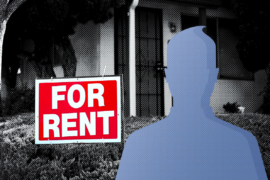In an earlier post, we stressed the importance of property owners and managers to take care in screening prospective tenants in a complete, deliberate process. The front-end work is especially important in light of a bill which went into effect January 2017, effectively cloaking a tenant’s eviction action history. In other words, unsuspecting landlords can now unknowingly turn the keys over to a tenant that has had a troublesome history of unlawful detainer actions that are sealed from the public view.
Thanks to the efforts of the California Apartment Association and other voices for property owners, there are safeguards for landlords, but rather than getting bogged down in this law or the merits of the bill, we wanted to shift gears.
While we highly advise a thorough vetting process of a prospective tenant’s rental history, financials and employment, an applicant’s criminal history is a topic that is a little more unwieldy, from a legal perspective. First, some backdrop.
There are thousands of California prisoners released on a monthly basis, all of whom need housing. Everyone can change, including ex-offenders, but as a landlord, taking a leap of faith and hoping a prospective tenant will change can be a risky proposition.
For this reason, landlords understandably use criminal record screening to manage their risk. There is a nebulous line, however, between protecting your investment and having a blanket policy of denying housing to all ex-offenders, and so the law attempts to strike a balance between the converging interests of property owners and the societal interest of transitioning stigmatized ex-offenders into normal life.
Enter the racial makeup of arrest and imprisonment – a disproportionate number of minorities are in the criminal justice system – and this has all of the elements of a potential discrimination claim against a landlord that categorically denies housing to anyone with a record.
“No American should ever be discriminated against because of their race or ethnicity, even if that discrimination results from a policy that appears neutral on its face. Black and Latino Americans are unfairly arrested at significantly higher rates than white Americans.”
~ Former HUD Secretary Julián Castro
The issue of housing discrimination against ex-offenders made its way to the U.S. Supreme Court, which allows plaintiffs to challenge housing practices that have a discriminatory effect without having to show discriminatory intent. The ruling lowers the burden for plaintiffs to show instead that the practices both have a “disparate impact” on racial groups and are not justified. Since Blacks and Latinos disproportionately enter the criminal justice system, ex-offenders meet this test.
Against the heels of that Supreme Court Decision, HUD issued sweeping guidelines for landlords and property managers to follow. While acknowledging that people with criminal records aren’t a “protected class” under the Fair Housing Act and in some cases, turning down a tenant because of their record can be legally justified, blanket bans on ex-offenders amount to de facto discrimination.
What this means is that if your rental policy excludes ex-offenders across the board, it is most likely in violation of housing laws, exposing you to liability. If you use criminal records to screen tenants, the policy must be narrowly tailored.
Landlords need to better scrutinize whether the perspective was arrested and if they were also convicted. Even if this distinction is made and the rental applicant was in fact convicted, property owners must weigh the nature and severity of the crime and conviction when deciding whether or not to rent to that person.
In parting thoughts, Bornstein Law stresses the importance that background check and screening criteria consistently to each and every rental applicant. So, if you deny one prospective tenant away because of a blemish on a criminal background check, but welcome another ex-offender as a tenant, you are exposing yourself to liability under fair housing laws. Landlords also need the tenant’s explicit permission and signature prior to running the criminal check. If you state that you’re going to conduct a criminal record check, you must do so uniformly for every applicant. You can, however, narrow the field by screening only those applicants that survive other checks, such as a credit report.
We hope you found this series to be informative, and as always, Daniel Bornstein is happy to engage in any questions you may have. Email him today.





